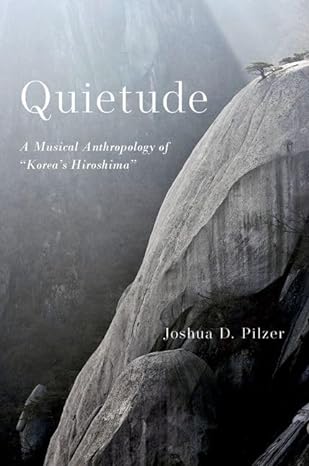Go back


Quietude A Musical Anthropology Of Korea S Hiroshima(1st Edition)
Authors:
Joshua D. Pilzer

Cover Type:Hardcover
Condition:Used
In Stock
Include with your book
Free shipping: April 16, 2024Popular items with books
Access to 3 Million+ solutions
Free ✝
Ask 10 Questions from expert
200,000+ Expert answers
✝ 7 days-trial
Total Price:
$0
List Price: $13.45
Savings: $13.45(100%)
Book details
ISBN: 0197615090, 978-0197615096
Book publisher: Oxford University Press
Get your hands on the best-selling book Quietude A Musical Anthropology Of Korea S Hiroshima 1st Edition for free. Feed your curiosity and let your imagination soar with the best stories coming out to you without hefty price tags. Browse SolutionInn to discover a treasure trove of fiction and non-fiction books where every page leads the reader to an undiscovered world. Start your literary adventure right away and also enjoy free shipping of these complimentary books to your door.
Quietude A Musical Anthropology Of Korea S Hiroshima 1st Edition Summary: Most of us the world over do not know much about the nuclear experience, let alone the 70,000 Korean victims of the atomic bomb or their arts of life and survival. Quietude: A Musical Anthropology of "Korea's Hiroshima" gives new insight into the overlooked and abused people who have lived and died on the margins of East Asian modernity. This book is an ethnography of Korean first- and second-generation victims of the atomic bombing of Japan focused on the everyday arts that make life possible and worthwhile.Author Joshua D. Pilzer recounts the stories and songs of atomic bomb survivors and their children in Hapcheon, Korea, offering a corrective to the enduring, multifaceted neglect and marginalization they have faced. Struck by the quiet of "Korea's Hiroshima," Pilzer sheds light on its many sources: notions of Japanese soft-spokenness, vocal disability, the quiet contemplation of texts, the changes to the human heart as one grows older, the experience of war, social marginalization, traumatic experience, and various social movement discourses. He considers victims' uses of voice, speech, song, and movement in the struggle for national and global recognition, in the ongoing work of negotiating the traumatic past, and in the effort to consolidate and maintain selves and relationships in the present.
Customers also bought these books
Frequently Bought Together
Top Reviews for Books
Michelle Duran
( 4 )
"Delivery was considerably fast, and the book I received was in a good condition."










